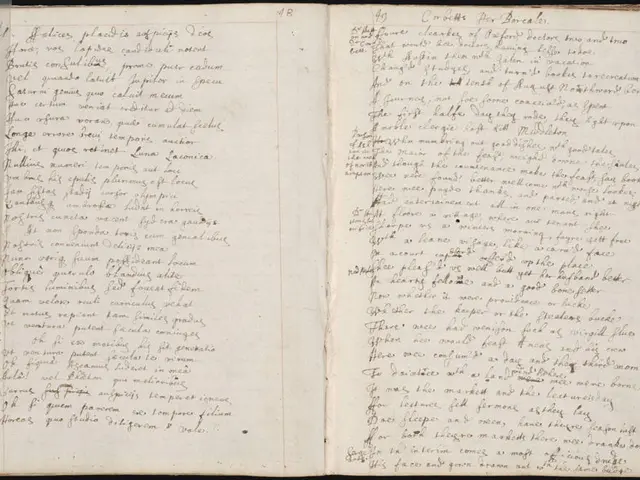Foreign officials, including EU representatives and 26 foreign ministers, advocate for Non-Governmental Organizations (NGOs) gaining entry into Gaza
In a joint statement, representatives from 26 Western countries and the European Commission have expressed their deep concern over the ongoing humanitarian crisis in the Gaza Strip and called for immediate and permanent access for the United Nations, non-governmental organizations, and humanitarian actors to the Palestinian territory.
The statement, signed by the foreign ministers of various EU countries, Australia, Canada, Iceland, Japan, Norway, Switzerland, and the UK, among others, emphasizes the urgent need for a flood of humanitarian aid to reach Gaza. The aid, they say, should include essential items such as food, shelter, fuel, clean water, and medicine.
The Western countries and the EU Commission are providing significant financial and logistical support to humanitarian actors operating in Gaza. Organizations like the International Rescue Committee (IRC) and the International Red Cross and Red Crescent Movement, supported by donations from these countries, are delivering lifesaving support within Gaza and neighboring regions. They are also pre-positioning supplies outside Gaza to scale up quickly once access improves.
However, Israeli restrictions and ongoing military operations critically hamper these efforts. The Israeli government has frequently blocked or severely limited the entry of humanitarian aid into Gaza, only permitting small quantities far below what is needed to prevent widespread starvation and displacement. Israeli policies include restrictions on aid convoys and the use of ineffective and costly airdrops.
Despite Israeli government denials of restricting aid, multiple humanitarian organizations have condemned these measures as violations of international humanitarian law and have warned about the life-threatening consequences. Gaza is one of the world’s deadliest settings for aid workers, with many Palestinian staff killed amid the hostilities. Aid organizations face threats like proposed bans by Israeli authorities on major aid groups and dangerous distribution schemes, complicating humanitarian operations.
The joint statement urges Israel to allow aid deliveries into the Gaza Strip and to utilise all border crossings and routes for humanitarian aid. The protection of civilians and aid workers at distribution points is also demanded. The humanitarian community continues to call for immediate lifting of blockades and restoration of safe, sustained humanitarian corridors.
The statement also highlights a potential famine in Gaza and the need for urgent action to prevent it. The representatives from the Western countries and the EU Commission are involved diplomatically in calling for humanitarian pauses and urging respect for the protection of civilians and aid workers.
It is worth noting that the EU Foreign Affairs Commissioner Kaja Kallas is among the signatories of the joint statement. However, Germany is not among the countries involved in the joint statement.
References:
- IRIN News
- United Nations Office for the Coordination of Humanitarian Affairs (OCHA)
- International Committee of the Red Cross (ICRC)
- International Rescue Committee (IRC)
- Al Jazeera
- The ongoing humanitarian crisis in Gaza, influenced by war-and-conflicts and politics, has prompted Western countries and the European Commission to urge Israel for immediate and permanent access for UN, NGOs, and humanitarian actors, citing the need for aid that includes food, shelter, fuel, clean water, and medicine.
- The joint statement, signed by foreign ministers from various EU countries, Australia, Canada, Iceland, Japan, Norway, Switzerland, and the UK, among others, also calls attention to the potential famine in Gaza and the need for urgent action to prevent it, emphasizing the importance of diplomatic engagement to ensure the protection of civilians and aid workers, and the restoration of safe, sustained humanitarian corridors.







